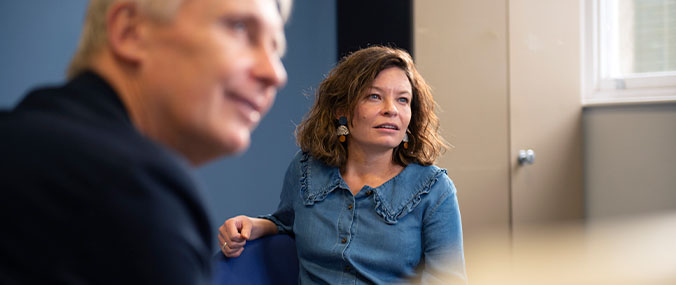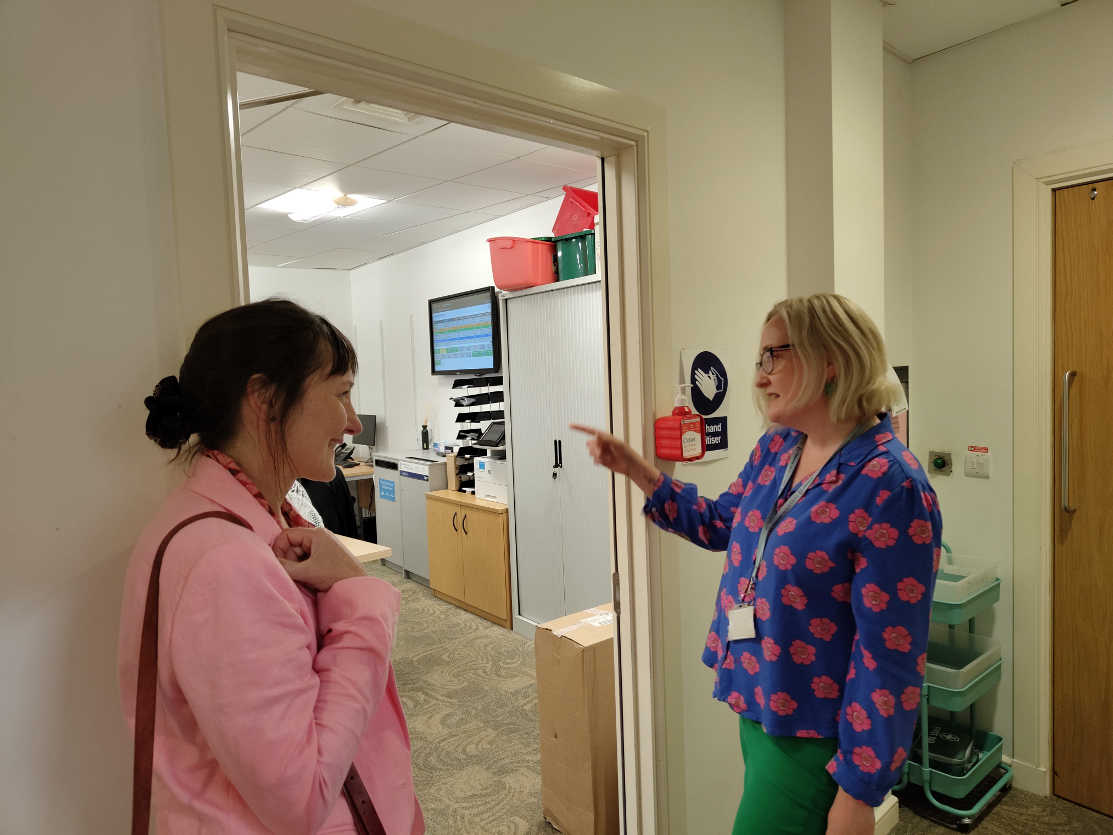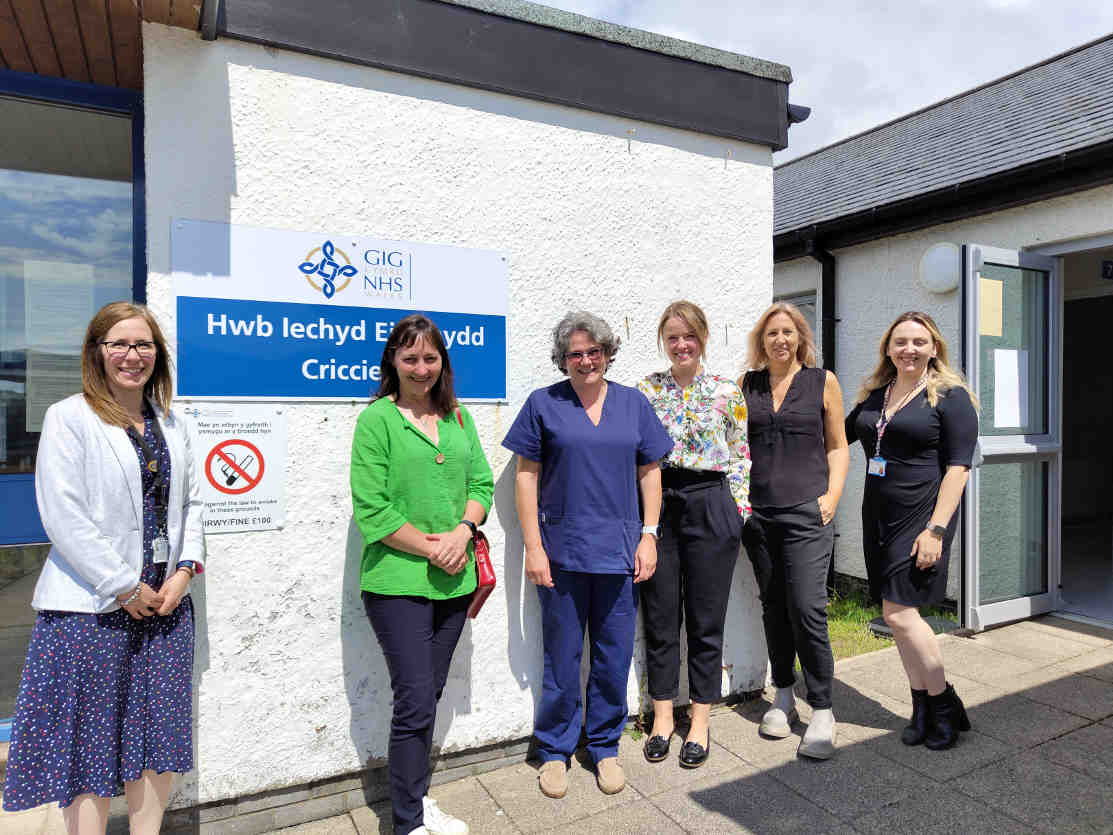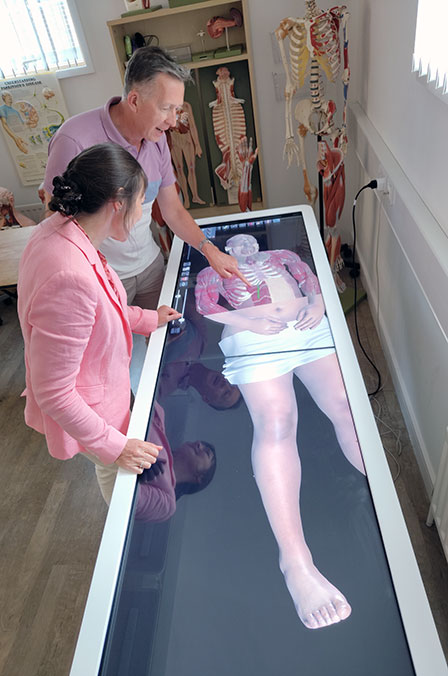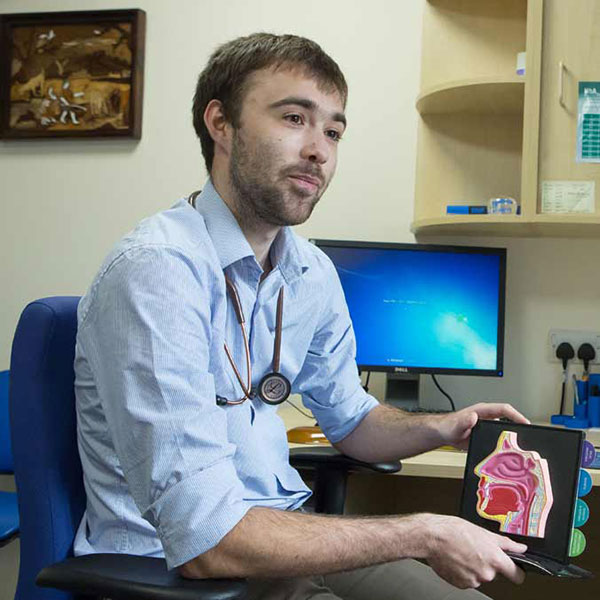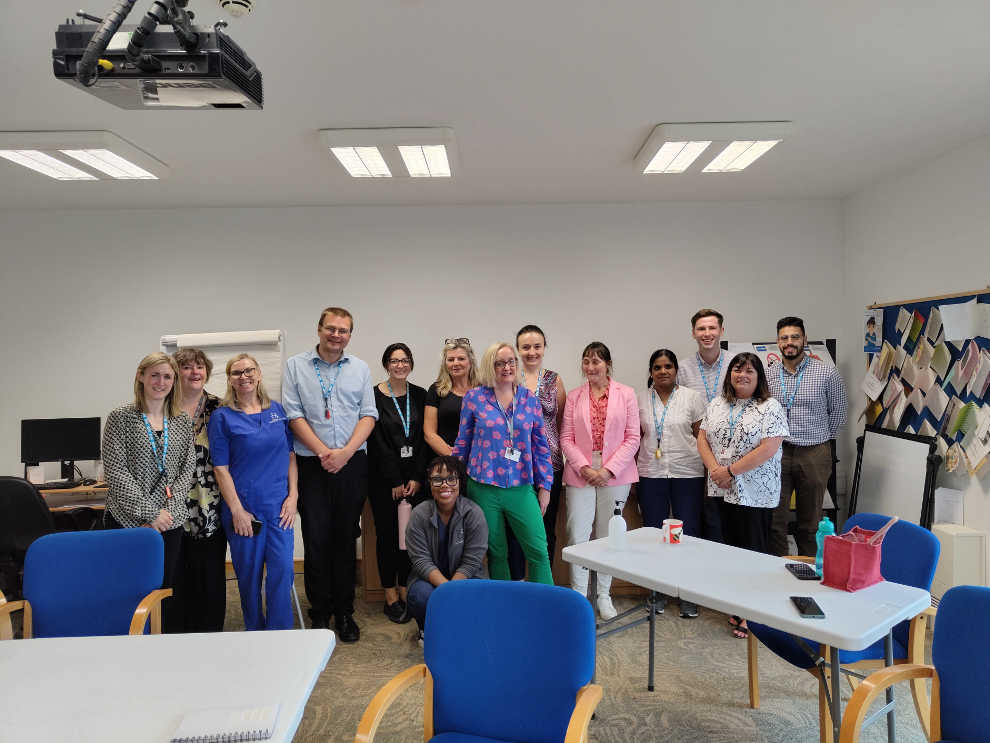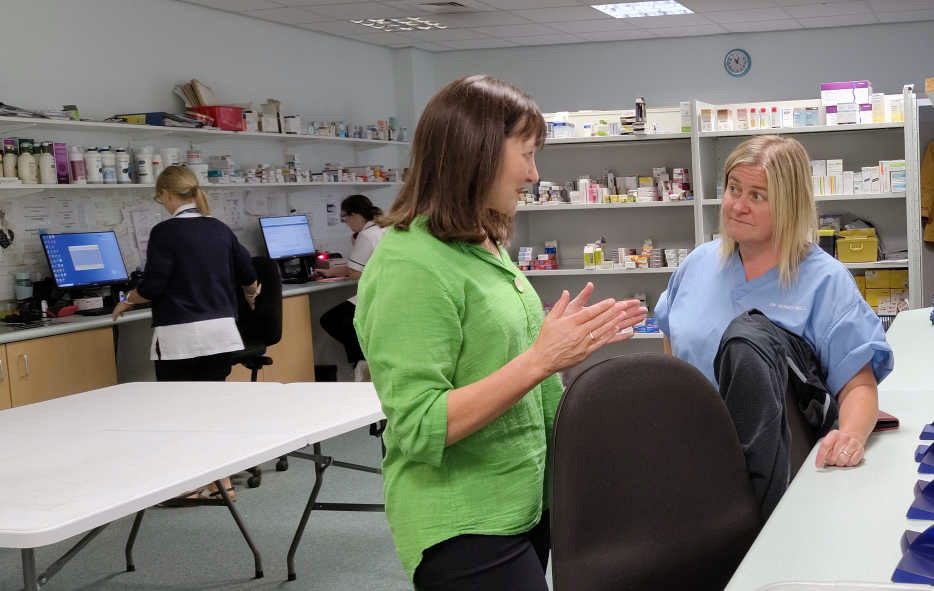General practice is in crisis, but we believe it has the scope to save the NHS. We know that a well-resourced, sustainable general practice can deliver better outcomes for patients, the wider NHS and the taxpayer. In 2026, the people of Wales will pick their next government, and we are making the case that general practice holds the key to improving our National Health Service.
Our manifesto is a call to re-think patient care and health spending priorities; to re-establish the family doctor in your local community as the trusted first point of contact from cradle to grave.
Many will tell you that the NHS is broken, our manifesto shows how general practice is a big part of the solution to it having a brighter future.
Investing in general practice works for the patient, the NHS and the taxpayer
General practice is in crisis.
- 83% of GPs in Wales feel that patient safety is being compromised by excessive workload
- 65% of respondents disagree that they have enough time to adequately assess and treat patients during appointments.
- 58% of GPs felt that their mental wellbeing had declined while working as a GP over the previous 12 months
- 57% of GPs said that their practice requires additional works to improve or upgrade the premises to meet practice/patient needs
- 37% of GPs felt they were ‘unlikely’ to still be working in general practice in five years’ time
While the number of full-time equivalent GPs has fluctuated over recent quarters, it must be remembered that this is from a starting point calculated by the BMA to represent an existing shortfall of 664 GPs in comparison to the OECD EU average .
In 2002, GPs worked across 516 practices in Wales. By the start of the pandemic in 2020, there were 404 practices. Today, just 374 GP practices remain. There are many factors contributing to this decline, but at its core is the lack of a plan for a sustainable general practice service for patients.
This barely managed decline has come about despite reports, studies and political discourse indicating the importance of a shift in resources from secondary care towards primary and preventive care. Such a move is common sense. A patient treated at an earlier stage is a patient who has a better outcome. It is a net gain for the wider NHS as it reduces pressure throughout health and social care services. That is simply good value for the taxpayer.
Research has shown that every £1 spent on funding general practice saves £3 of hospital costs . There is an additional financial benefit if early treatment enables the patient to remain economically active. The NHS Confederation found that for every additional £1 spent on primary or community care, there was scope to increase economic output by £14 . We believe that general practice offers a vital opportunity to resolve long-standing and recurring challenges within the health service.
Deliver relationship-based care
GP time is precious for patients. It can have great therapeutic value with few adverse side effects. As workload rises while the workforce shrinks, GPs face mounting time pressures and demanding administrative tasks, and they struggle to safeguard essential time for patient consultations.
RCGP Cymru Wales welcomes measures which have been taken to recognise the importance of continuity of care within the GMS contract. This is a step in the right direction to a general practice which values delivering quality care for patients.
Although the pressures can feel overwhelming, GPs remain focused on trying to deliver meaningful, relationship-based care to patients. The time constraint imposed by 10-minute consultations mean that GPs increasingly need to be reactive, treating the immediate symptoms presented to them, rather than having the time to focus on potentially deeper-rooted causes. It can also prevent GPs from proactively addressing important preventive topics such as diet and lifestyle advice, gambling concerns, domestic abuse or supporting patients with smoking cessation. This was echoed by results of our 2024 GP Voice survey. When asked whether there is enough time during appointments to build the patient relationship needed to deliver quality care, 57% of our members disagreed. Furthermore, 65% of members felt that they do not have enough time during appointments to adequately assess and treat patients.
Multi-disciplinary teams are a crucial factor in improving a GP’s scope to focus on preventive care and early intervention. A collaborative approach works to ensure that patient needs are managed efficiently in a timely and cost-effective way. Investment in multi-disciplinary teams within general practice will free up GP time and offer patients a wider set of services such as physiotherapy, talking therapy, social prescribing and expert medication advice.
Freeing up GP time is also essential to ensure that the workforce is offered adequate time for their own continued professional development, development of special clinical interests quality improvement and research, as well as the opportunity to train new GPs and support the education of the next generation of doctors progressing through Welsh Medical Schools. Such activity fosters job satisfaction and decreasing burnout. Whilst time with patients will remain the most important part of general practice, these other aspects of a GP’s role are important for the sustainability of primary care.
Our policy calls:
- Free GPs from excess bureaucracy to deliver relationship-based care.
- Increase the workforce of both GPs and multi-disciplinary teams to allow GPs to spend more time with patients.
- Provide protected time for professional development, quality improvement, research, education and training.
Mae buddsoddi mewn meddygaeth deulu yn gweithio i’r claf, y GIG a’r trethdalwr
Mae Meddygaeth Deulu mewn argyfwng.
- 83% o Feddygon Teulu yng Nghymru yn teimlo bod gormod o lwyth gwaith yn effeithio ar ddiogelwch cleifion
- 65% o’r ymatebwyr yn anghytuno bod ganddynt ddigon o amser i asesu a thrin cleifion yn ddigonol yn ystod apwyntiadau.
- 58% o feddygon teulu yn teimlo bod eu lles meddyliol wedi dirywio wrth weithio fel meddyg teulu dros y 12 mis blaenorol
- 57% o Feddygon Teulu yn dweud fod angen gwaith ychwanegol ar eu heiddo i wella neu uwchraddio’r adeilad i ddiwallu anghenion y practis/claf
- 37% o Feddygon Teulu yn teimlo eu bod yn ‘annhebygol’ o fod yn gweithio ym maes meddygaeth deulu ymhen pum mlynedd1
Er bod nifer y meddygon teulu cyfwerth ag amser llawn wedi amrywio dros chwarteri diweddar, rhaid cofio bod hyn o fan cychwyn a gyfrifwyd gan y BMA i gynrychioli diffyg presennol o 664 o feddygon teulu o’i gymharu â chyfartaledd yr UE yn ôl yr OECD2.
Yn 2002, roedd meddygon teulu yn gweithio ar draws 516 o bractisau yng Nghymru. Erbyn dechrau’r pandemig yn 2020, roedd 404 o bractisau. Heddiw, dim ond 374 o bractisau meddygon teulu sydd ar ôl. Mae llawer o ffactorau’n cyfrannu at y dirywiad hwn, ond yn ganolog i hyn mae diffyg cynllun ar gyfer gwasanaeth meddygaeth deulu cynaliadwy i gleifion.
Mae’r gostyngiad hwn, sydd prin yn cael ei reoli, wedi digwydd er gwaethaf adroddiadau, astudiaethau a thrafodaethau gwleidyddol sy’n dangos pwysigrwydd symud adnoddau o ofal eilaidd i ofal sylfaenol a gofal ataliol. Mae symudiad o’r fath yn synnwyr cyffredin. Mae claf sy’n cael ei drin yn gynharach yn glaf sy’n cael canlyniad gwell. Mae’n enilliad net i’r GIG ehangach gan ei fod yn lleihau’r pwysau ar draws gwasanaethau iechyd a gofal cymdeithasol. Yn syml iawn, mae hynny’n werth da i’r trethdalwr.
Mae ymchwil wedi dangos bod pob £1 sy’n cael ei wario ar gyllido meddygaeth deulu yn arbed £3 o gostau ysbyty3 . Mae mantais ariannol ychwanegol os yw triniaeth gynnar yn galluogi’r claf i barhau i fod yn economaidd weithgar. Canfu Cydffederasiwn y GIG, am bob £1 ychwanegol sy’n cael ei gwario ar ofal sylfaenol neu ofal cymunedol, fod cyfle i gynyddu £14 ar allbwn economaidd4.
Credwn fod meddygaeth deulu yn cynnig cyfle hanfodol i ddatrys heriau sy’n codi dro ar ôl tro yn y gwasanaeth iechyd.
Darparu gofal sy’n seiliedig ar berthynas
Mae amser meddygon teulu yn werthfawr i gleifion. Gall fod â gwerth therapiwtig mawr heb lawer o sgil-effeithiau niweidiol. Wrth i lwyth gwaith gynyddu tra bo’r gweithlu’n crebachu, mae meddygon teulu’n wynebu pwysau cynyddol o ran amser a thasgau gweinyddol anodd, ac maent yn ei chael yn anodd diogelu amser hanfodol ar gyfer ymgynghoriadau cleifion.
Mae Coleg Brenhinol y Meddygon Teulu Cymru yn croesawu mesurau sydd wedi cael eu rhoi ar waith i gydnabod pwysigrwydd parhad gofal yn y contract ar gyfer Gwasanaethau Meddygol Cyffredinol. Mae hyn yn gam i’r cyfeiriad cywir tuag at feddygaeth deulu sy’n gwerthfawrogi darparu gofal o safon i gleifion.
Er bod y pwysau’n gallu teimlo’n llethol, mae meddygon teulu’n dal i ganolbwyntio ar geisio darparu gofal ystyrlon sy’n seiliedig ar berthynas i gleifion. Mae’r cyfyngiad amser a achosir gan 10 munud o ymgynghori yn golygu bod angen i feddygon teulu fod yn adweithiol, gan drin y symptomau uniongyrchol a gyflwynir iddynt, yn hytrach na chael yr amser i ganolbwyntio ar achosion a allai fod wedi’u gwreiddio’n ddyfnach o bosibl. Gall hefyd atal meddygon teulu rhag mynd i’r afael yn rhagweithiol â phynciau ataliol pwysig fel cyngor ar ddeiet a ffordd o fyw, pryderon ynghylch gamblo, cam-drin domestig neu gefnogi cleifion sy’n rhoi’r gorau i ysmygu. Ategwyd hyn gan ganlyniadau ein harolwg Llais Meddygon Teulu 2024. Pan ofynnwyd a oes digon o amser yn ystod apwyntiadau i feithrin y berthynas â chleifion sydd ei hangen i ddarparu gofal o safon, roedd 57% o’n haelodau yn anghytuno. Ar ben hynny, roedd 65% o aelodau’n teimlo nad oes ganddynt ddigon o amser yn ystod apwyntiadau i asesu a thrin cleifion yn ddigonol.
Mae timau amlddisgyblaethol yn ffactor hanfodol o ran gwella gallu meddyg teulu i ganolbwyntio ar ofal ataliol ac ymyrraeth gynnar. Mae dull cydweithredol yn gweithio i sicrhau bod anghenion cleifion yn cael eu rheoli’n effeithlon mewn ffordd amserol a chost-effeithiol. Bydd buddsoddi mewn timau amlddisgyblaethol o fewn meddygaeth deulu yn rhyddhau amser meddygon teulu ac yn cynnig set ehangach o wasanaethau i gleifion fel ffisiotherapi, therapi siarad, rhagnodi cymdeithasol a chyngor arbenigol ar feddyginiaethau.
Mae rhyddhau amser meddygon teulu hefyd yn hanfodol i sicrhau bod y gweithlu’n cael cynnig digon o amser ar gyfer eu datblygiad proffesiynol parhaus eu hunain, datblygu ymchwil a gwella ansawdd diddordebau clinigol arbennig, yn ogystal â’r cyfle i hyfforddi meddygon teulu newydd a chefnogi addysg y genhedlaeth nesaf o feddygon sy’n symud ymlaen drwy Ysgolion Meddygol Cymru. Mae gweithgarwch o’r fath yn meithrin boddhad mewn swydd a llai o orflino. Er mai amser gyda chleifion fydd y rhan bwysicaf o feddygaeth deulu o hyd, mae’r agweddau eraill hyn ar rôl meddyg teulu yn bwysig o ran cynaliadwyedd gofal sylfaenol.
Ein galwadau o ran polisi:
- Rhyddhau Meddygon Teulu o fiwrocratiaeth gormodol er mwyn darparu gofal yn seiliedig ar berthynas.
- Cynyddu gweithlu meddygon teulu a thimau amlddisgyblaethol er mwyn caniatáu i feddygon teulu dreulio mwy o amser gyda chleifion.
- Darparu amser wedi’i neilltuo ar gyfer datblygiad proffesiynol, gwella ansawdd, ymchwil, addysg a hyfforddiant.
Thank you for your feedback. Your response will help improve this page.
